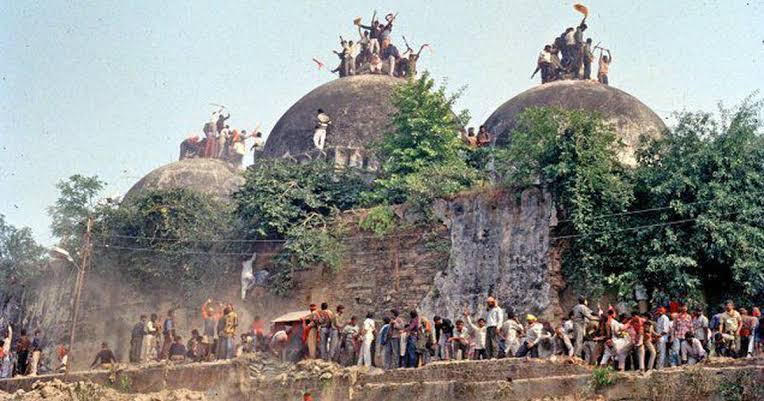The Supreme Court on Monday declined to quash a criminal case filed against a Muslim man accused of posting a social media message about the demolished Babri Masjid, which read, “Babri Masjid will one day be rebuilt, just like Turkey’s Sophia Mosque.”
A bench of Justices Surya Kant and Joymalya Bagchi dismissed the plea as withdrawn after hearing Advocate Talha Abdul Rahman, who appeared for the petitioner, Mansuri.
Rahman argued that the petitioner’s post contained no vulgar or inflammatory content and that the objectionable remarks were actually made by another individual who had not been investigated.
However, the bench remained unconvinced. “We have gone through the post. Don’t invite any comment from us,” Justice Kant remarked, cautioning the counsel.
The court disposed of the matter, observing that all issues raised by the petitioner would be considered by the trial court on their own merits.
The case dates back to August 6, 2020, when an FIR was filed against Mansuri, now a law graduate, accusing him of posting a “derogatory message” on Facebook.
The complaint alleged that one Samreen Bano posted an indecent and inflammatory comment on his post targeting Hindu deities.
The FIR was registered under Sections 153A, 292, 505(2), 506, and 509 of the IPC, and Section 67 of the Information Technology (Amendment) Act, 2008.
Subsequently, the District Magistrate of Lakhimpur Kheri ordered Mansuri’s detention under the National Security Act (NSA), 1980, but the Allahabad High Court quashed the detention in September 2021.
Earlier this year, the trial court took cognizance of the chargesheet against Mansuri.
Mansuri then approached the High Court, arguing that his Facebook account had been hacked and that he neither made the alleged post nor intended to incite enmity.
He further claimed that the inflammatory remarks were made in the comments section by one Ritesh Yadav, who used the fake name Samreen Bano.
In September, the High Court declined to quash the proceedings but directed that the trial be expedited.
Dissatisfied, Mansuri appealed to the Supreme Court, which has now dismissed his plea.
The Babri Masjid demolition on December 6, 1992, is remembered as a major incident of anti-Muslim violence in India. Thousands of kar sevaks (Hindutva volunteers), encouraged by groups linked to the RSS, VHP, and BJP, tore down the 16th-century mosque in Ayodhya.
The mosque had been built in 1528 by Mir Baqi, a general of the Mughal ruler Babur.
These groups claimed that the mosque stood on the exact birthplace of Lord Ram, where a temple once existed. Even though the Supreme Court had been assured that the mosque would not be harmed, it was destroyed in broad daylight.
The demolition of the medieval mosque, which was constructed under the rule of the first Mughal Emperor Babur, triggered anti-Muslim violence in parts of India that continued for months. More than 2,000 people were killed in the worst anti-Muslim riots since India’s independence in 1947.
Slogans like “Babri is just the beginning; Kashi and Mathura are next” were heard during and after the incident, adding to more Islamophobic tension.
The Supreme Court, in its 2019 verdict, stated that the demolition of the Babri Masjid was an “illegal act” and an “egregious violation of the rule of law.”
The court also ruled that the 1949 desecration was illegal but still awarded the 2.77-acre disputed site to the Hindu parties for the construction of a Ram temple.
The post SC refuses to quash case against man over social media post saying demolished “Babri Masjid will be rebuilt” appeared first on Maktoob media.










